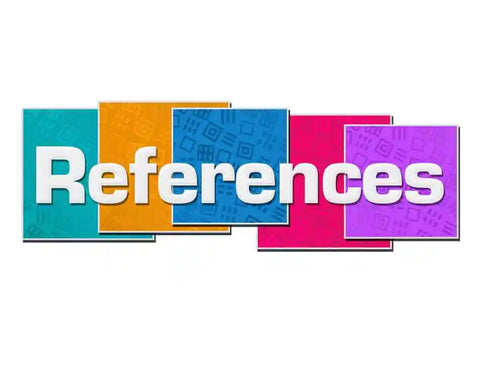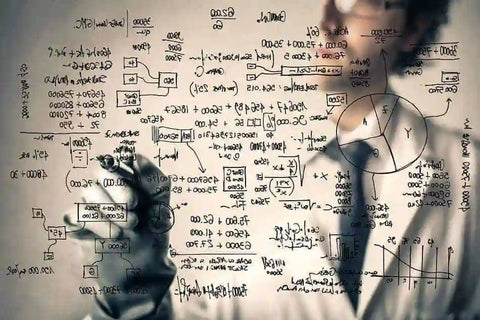Checking and Correcting References Effectively and Efficiently | Tips on How to Get Your Research Published
Very few scholars enjoy adding references to their manuscripts, and the time and effort needed to check and correct them before submitting writing for publication are often resented. Yet the references are necessary for more than one reason, and they must be not only correct, but also formatted exactly as indicated in the author instructions provided by the journal or press to which the work will be submitted. Of course, having finished writing the document, proofreading it for errors and editing it carefully to produce the clearest and most concise prose possible, the last thing an academic or scientific author might feel like doing is perfecting references, but this rather tedious work must nonetheless be done.
There are three essential ways in which to check references, and all three should be used, though there is not necessarily a best order for doing them that will apply to all situations, so you may want to follow the order I give here or an order that suits your work better.
• You should revisit the guidelines provided by the publisher and check your references against them. Ensure that you are using the right method (numerical, parenthetical etc.) and style (Vancouver, American Psychological Association etc.) for both your in-text citations and the complete references in your list. Look for any limitations on the number of references allowed and do not exceed them. Check that all the bits of information indicated in the guidelines for each kind of reference are there in every case and that you have not included unnecessary information. Check the order of the entries in your list, whether numerical or alphabetical, for accuracy, and check each reference to ensure that the bits of information are always given in the correct order. The punctuation between those bits of information should also be checked and corrected to conform to the guidelines and observe consistency.
• You should also check your in-text citations against your list of complete references. You will need to ensure that every source cited in the document also appears in the reference list. In most cases it will also be essential to include in the list only those sources that are directly cited in the document, but this is not uniform and bibliographies can contain references to additional sources. The publisher guidelines should indicate whether additional sources are appropriate for your manuscript or not. Any information that appears in both the main text and the reference list should match with precision, so check the spelling of author names and the accuracy of publication dates. If you are using a numerical system of references, ensure that your numbering is correct in both places and that you always lead your readers to the correct sources.
• Finally, you should check your references against the original sources. Ensure that the information you refer to in your text really can be found precisely where your citations indicate it will be. Compare the data you have recorded in your complete references to the author name(s), book and article titles, publication dates and places and any other necessary information as they actually appear in the sources to ensure that you have not left out anything vital or introduced any errors. Accuracy is required to acknowledge your predecessors appropriately and enable readers to find your sources successfully, so great care should be taken to get every detail just right.
Why Our Editing and Proofreading Services?
At Proof-Reading-Service.com we offer the highest quality journal article editing, dissertation proofreading and online proofreading services via our large and extremely dedicated team of academic and scientific professionals. All of our proofreaders are native speakers of English who have earned their own postgraduate degrees, and their areas of specialisation cover such a wide range of disciplines that we are able to help our international clientele with research editing to improve and perfect all kinds of academic manuscripts for successful publication. Many of the carefully trained members of our manuscript editing and proofreading team work predominantly on articles intended for publication in scholarly journals, applying painstaking journal editing standards to ensure that the references and formatting used in each paper are in conformity with the journal’s instructions for authors and to correct any grammar, spelling, punctuation or simple typing errors. In this way, we enable our clients to report their research in the clear and accurate ways required to impress acquisitions proofreaders and achieve publication.
Our scientific proofreading services for the authors of a wide variety of scientific journal papers are especially popular, but we also offer manuscript proofreading services and have the experience and expertise to proofread and edit manuscripts in all scholarly disciplines, as well as beyond them. We have team members who specialise in medical proofreading services, and some of our experts dedicate their time exclusively to dissertation proofreading and manuscript proofreading, offering academics the opportunity to improve their use of formatting and language through the most exacting PhD thesis editing and journal article proofreading practices. Whether you are preparing a conference paper for presentation, polishing a progress report to share with colleagues, or facing the daunting task of editing and perfecting any kind of scholarly document for publication, a qualified member of our professional team can provide invaluable assistance and give you greater confidence in your written work.
If you are in the process of preparing an article for an academic or scientific journal, or planning one for the near future, you may well be interested in a new book, Guide to Journal Publication, which is available on our Tips and Advice on Publishing Research in Journals website.








